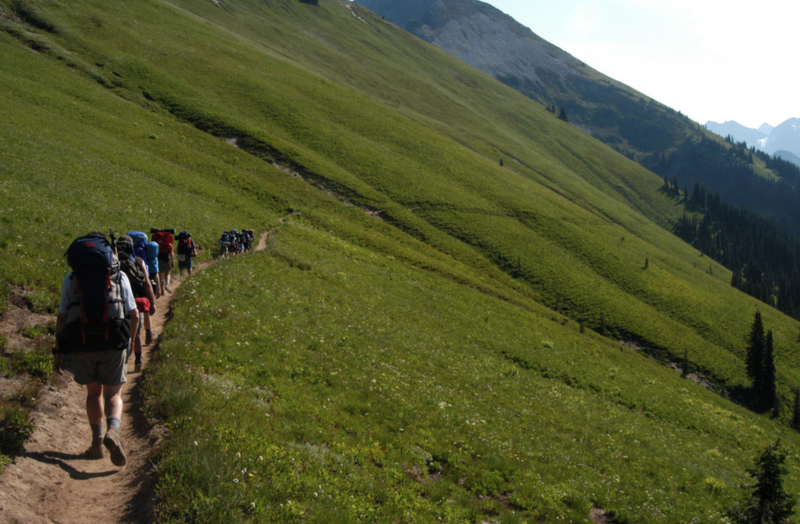How Hiking Can Help Our Brains

As more people move to urban areas, they spend less and less time outdoors. While we already know this has a negative effect on our physical health, researchers are now beginning to realize that it's also having an effect on our mental health. As researchers learn more about the health benefits of walking outside and how hiking helps our brains, they're finding some very surprising results.
Prevents You From Focusing on Negative Thoughts
Brooding and focusing on negative thoughts are issues that everyone deals with at one point or another. Unfortunately, sometimes these negative thoughts become obsessive and lead to depression and anxiety. Psychologists call this "rumination," and they began to wonder: Can the outdoors help the brain and affect rumination? Researchers at Stanford University decided to find out.
They brought in 38 volunteers and asked them to answer 12 rumination questions on a 5-point scale. Then they split the volunteers into two groups for a 90-minute walk. One group went for a walk in a green space, and the other group went for a walk in a congested downtown area. After the walk, the volunteers came back and answered the questionnaire again. The researchers found that those who went for a walk in the green space reported lower levels of rumination.
Improves ADHD in Children
Attention Deficit Hyperactivity Disorder (ADHD) is an increasingly common disorder in children, characterized by distractibility, focus issues, impulse control problems, and hyperactivity. While the disorder is hard on children, it's also difficult and perplexing to parents. For years, the typical solution was medication. However, doctors are now beginning to realize that exposing children to green outdoor activities, such as hiking, can help reduce their ADHD symptoms.
In fact, one study found that children who spend more time outside show a significant reduction in their ADHD symptoms. While walking to school and playing ball in an open field are tasks these children can participate in, even something as simple as doing homework next to a window with a view of green space can help.
Helps Creative Problem Solving
While the advanced technologies of the world today offer many benefits, being plugged in 24 hours a day, seven days a week also leaves us feeling overwhelmed and stressed. This can hamper our creative problem solving ability. To see whether reconnecting with nature can help, researchers studied a group of participants who went on a four-day hike without any technology. During the hike, they had to complete tasks that require complex problem solving and creativity.
When disconnected from technology and immersed in nature, participants showed a 50 percent improvement in performance on these problem-solving tasks. The technology and noise in our urban environments demand our constant attention, which takes away from our ability to solve problems. Something as simple as a long hike without technology can boost creative thinking.
Burns Calories
The mind and the body are connected, and a healthy body leads to a healthy mind. Hiking is a great way to get your body in shape. Depending on the difficulty of the hike, you can burn anywhere from 400 to 700 calories an hour. Plus, although running is difficult on the joints, hiking doesn't put as much stress on them.
Regular hikes can decrease your chances of developing arthritis and osteoporosis. If you already have arthritis, hiking 150 minutes every week can help you decrease joint stiffness and maintain flexibility. Finally, if you're looking for an exercise program you can stick to, consider that those who exercise outdoors are more likely to stay with their program.
Helps Memory
We all know that exercise is good for your body, but researchers have also wondered: How does exercise help your brain? Just as exercise helps our bodies feel healthy, it helps our brains feel good as well. In fact, a hike can even help improve our cognitive ability and memory.
In one experiment, researchers studied a group of middle-aged people asked to walk for 40 minutes three times a week for one year. At the end of program, MRI scans of the participants' brains showed about a 2 percent growth in the hippocampus, which is the part of the brain associated with episodic and spatial memory. As we get older, the hippocampus tends to become smaller, which leads to memory loss. Other studies have shown that a simple hike can release the feel-good hormones endorphins, boost self-esteem, and reduce anxiety and stress, which are all things that many people take medication for every day.
The next time you're feeling under the weather or unhealthy, head outside and enjoy the benefits of a nice, long hike.

